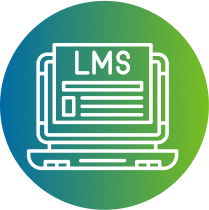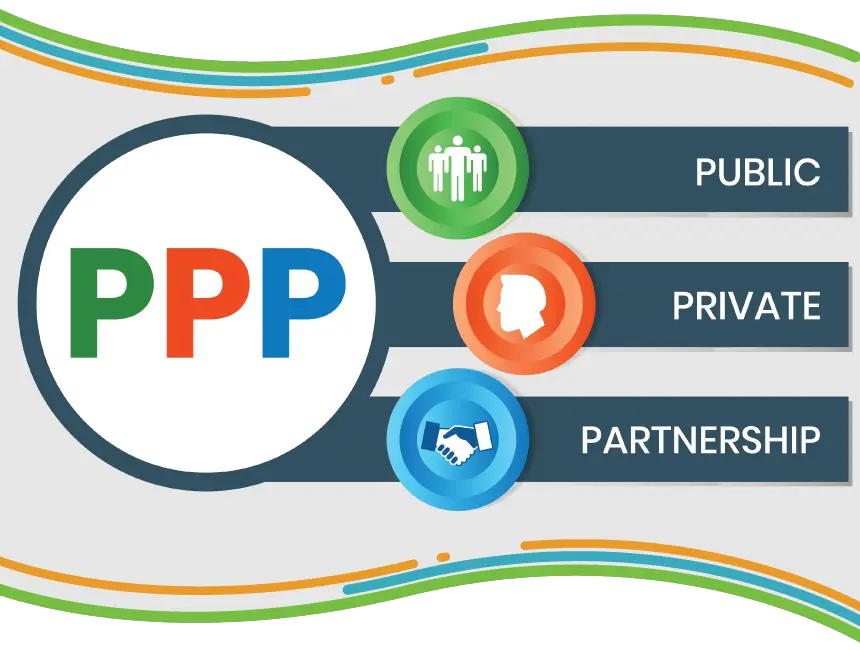PPP Project Implementation (Bidder Perspective)
Synergy Academy’s PPP Project Implementation (Bidder Perspective) course is designed for professionals seeking a comprehensive understanding of the private sector’s role in Public-Private Partnership (PPP) projects.
This course focuses on the bidder’s perspective during the project implementation phase, providing participants with the tools and strategies needed to navigate the complexities of competing for and successfully delivering PPP projects. Key topics include understanding project risk allocation, preparing competitive bids, managing financing structures, and addressing the technical, financial, and legal challenges during the contract negotiation phase.

Participants will also learn how to assess the financial viability of a project, structure their bid to meet both public sector requirements and investor expectations, and develop strategies for effective project development and long-term operations. Through case studies and simulations, students will gain valuable insights into the dynamics of PPP project implementation, including stakeholder management, project timelines, and ensuring compliance with performance standards.
This course is ideal for private sector professionals, project developers, investors, and consultants involved in bidding for and managing PPP projects in sectors such as infrastructure, transportation, energy, and public services.
Summary
PPP Project Implementation (Bidder Perspective) - 80 Hours
Tender Process for a PPP project (Bidder Perspective)
Risk Allocation & Mitigation
PPP/ Project Finance
Due Diligence/ Risk Assessment
PPP/ Project Finance
Payment Mechanism
PPP/ Project Finance
PPP Sectoral Analysis [Choice of the relevant sector]
Project Finance
Introduction
Project Finance
Structuring a Deal
Key Contracts/ Documentation
PPP/ Project Finance
Loan Term Sheet and Commitment Letter
Equity Valuation
Modules
 Tender Process for a PPP project (Bidder Perspective)
Tender Process for a PPP project (Bidder Perspective)
- Type of Tender Process – single stage or two stage
- Key Considerations for Private Sector
- Preliminary Assessment and decision to respond
- Getting the team together – consortium, advisors, financing
- Bid submission, award & negotiations till Financial Close
 Risk Allocation & Mitigation - PPP/Project Finance
Risk Allocation & Mitigation - PPP/Project Finance
- Risk phases- development, construction, start-up and operations & maintenance
- Trigger points- concession signing, financial close, commercial operation date, end of loan
- Allocation and mitigation of risk
- Case Study – Risk allocation in a conventional power/ renewable energy projects
 Due Diligence/ Risk Assessment - PPP/Project Finance
Due Diligence/ Risk Assessment - PPP/Project Finance
- Purpose and approach to due diligence (DD)
- Due Diligence/ Risk Assessment
- Technical project analysis – technology, construction and operation
- Financial structure risk – allocation of responsibilities and governance, refinancing issues, interest rate and currency volatility
- Input risk – analyzing the price and volatility of inputs
- Offtake risk – the output structure (with take or pay and other examples)
- Contract risk – default and management of counterparties
- Environmental risk
- Group Exercise – DD of a sample PPP project
 Payment Mechanism - PPP/Project Finance
Payment Mechanism - PPP/Project Finance
- Volume linked payment mechanisms, when to use them and the main features
- Availability concept elements and structuring matters in availability payment mechanisms
- Hybrid payment mechanisms
- Group Exercise – Determine the most suitable payment mechanism for sample project
 PPP Sectoral Analysis (Choice of the relevant sector)
PPP Sectoral Analysis (Choice of the relevant sector)
- Focus session on any one sector (with relevant examples) – sector options 1) Power 2) Renewables 3) Urban & Social Infra 4) Transport 5) Water 6) Waste 7) District Cooling/ Heating
- Types of projects within the sector
- Sector overview
- Typical PPP structure employed for the sector
- Payment Mechanism
- Risk allocation
 Project Finance – Introduction
Project Finance – Introduction
- Corporate vis-à-vis Project Finance
- Essentials of project finance: limitation of recourse
- SPV structure
- Project Finance – the various stakeholders
- Overview of various sources of financing & key terms
- Case study – Project Finance as a means to arrange financing for projects
 Project Finance - Structuring a Deal
Project Finance - Structuring a Deal
- Key Steps involved in arranging Project Finance
- Sources of Financing – Corporate Banks/ DFIs/ ECAs/Islamic Financing
- Type of lending – recourse/ limited recourse
- Key criteria (Interest Rate, Fees, Financial Ratios and Security Package)
- Other considerations: surplus cash flows, lock-ups, cash sweeps
- Cashflow waterfall – reserve accounts, dividends
- Equity contribution – cash equity, equity bridge loans and subordinated shareholder debt – the sponsor perspective
- Group Exercise – Preparing a list of sector-specific issues for deals in 1) Solar PV 2) Airports (or any other 2 sectors as per client requirements)
 Key Contracts/ Documentation - PPP/Project Finance
Key Contracts/ Documentation - PPP/Project Finance
- Key contracts and their interrelationship
- EPC/turnkey contracts
- PPA/Concession Agreement,
- GCSA/PCOA/IA
- O&M Contract/ LTSA Contract
- Direct Agreements
- Shareholder/Investment Agreements
- Financing Agreements
- Input/ Fuel Supply
- Contract issues: liquidated damages, performance bonds and retentions, completion guarantees
- Advantages and disadvantages of standard form contracts
 Loan Term Sheet and Commitment Letter
Loan Term Sheet and Commitment Letter
- Covenants, undertakings and the concept of sources and uses
- Security documents – mortgages, pledges, assignments, charges and liens
- Limited-recourse or stand-by equity and parent company guarantees
- Project finance term-sheet format
- Group Exercise – Checklist for comparative evaluation of Loan Term Sheets
 Equity Valuation
Equity Valuation
- Equity NPV/ IRR and project IRR
- XNPV, XIRR, MIRR
- Modelling cash flow and ratios
- Allowing for accountancy – depreciation, tax and capital allowances
Training Highlights
-
Certification &
Recognition -
LMS Portal
Access -
Flexible Training
Method -
Industry - Relevant
Case Studies Covered -
Knowledge
Resources -
Comprehensive
Training Assessment -
Progress
Tracking -
Project Based
Learning Curve












